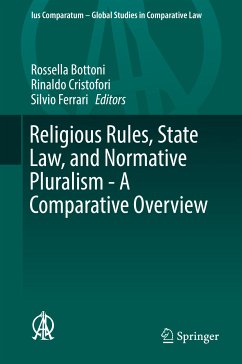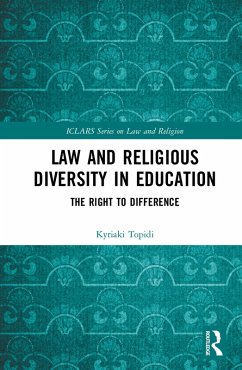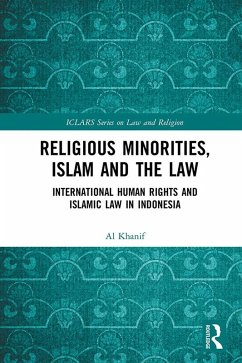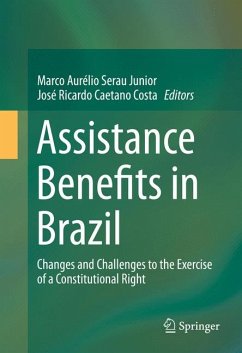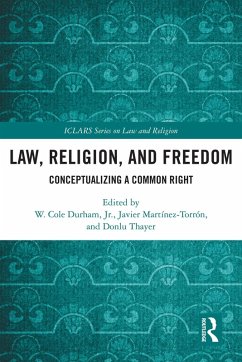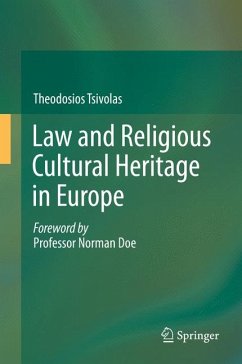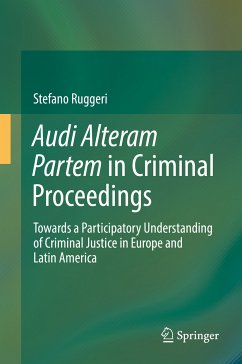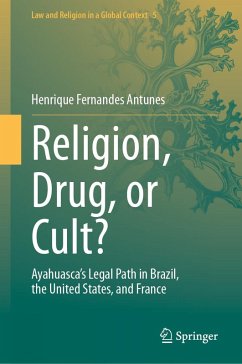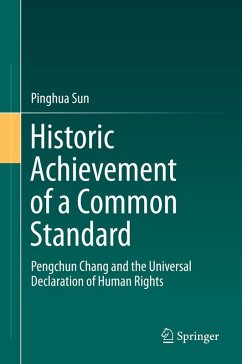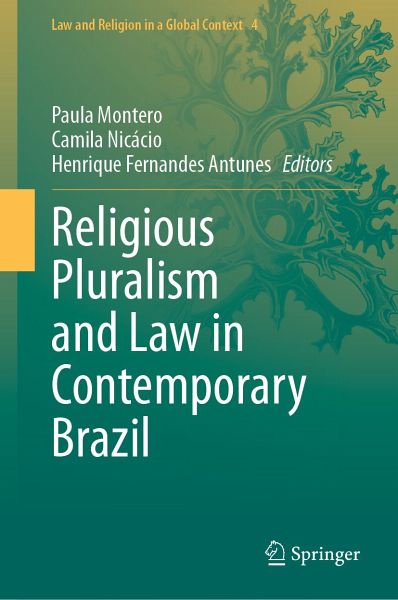
Religious Pluralism and Law in Contemporary Brazil (eBook, PDF)
Versandkostenfrei!
Sofort per Download lieferbar
104,95 €
inkl. MwSt.
Weitere Ausgaben:

PAYBACK Punkte
52 °P sammeln!
This book represents a unique contribution to understanding the interactions between law and religion in contemporary Brazil. It analyzes how the regulation of religions according to the classical notion of secularism has become a source of tensions since the 1990s. Against this background, the respective chapters demonstrate, on the basis of various case studies, how the constitutional principle of pluralism, introduced by the 1988 federal constitution after a military dictatorship, has been addressed by new political actors, such as religious leaders, parliamentarians, influencers, state rep...
This book represents a unique contribution to understanding the interactions between law and religion in contemporary Brazil. It analyzes how the regulation of religions according to the classical notion of secularism has become a source of tensions since the 1990s. Against this background, the respective chapters demonstrate, on the basis of various case studies, how the constitutional principle of pluralism, introduced by the 1988 federal constitution after a military dictatorship, has been addressed by new political actors, such as religious leaders, parliamentarians, influencers, state representatives, and activists. In particular, the chapters demonstrate how the mobilization of legal language, notably the language of human rights, has become fundamental to developing and consolidating new political agendas concerning secularism, tolerance, freedom of expression, gender and sexuality, family, and cultural heritage. In the authors' approach, human rights assume a central role in social disputes as a language in which actors constitute themselves as rights subjects, form activist networks, and pursue their goals by expressing themselves in public. Given its focus and scope, the book will be of interest to all scholars seeking to understand the relationships between diversity and the regulation of religious practices in plural societies, where the classical notion of secularism continues to show its limitations.
Dieser Download kann aus rechtlichen Gründen nur mit Rechnungsadresse in A, B, BG, CY, CZ, D, DK, EW, E, FIN, F, GR, HR, H, IRL, I, LT, L, LR, M, NL, PL, P, R, S, SLO, SK ausgeliefert werden.



